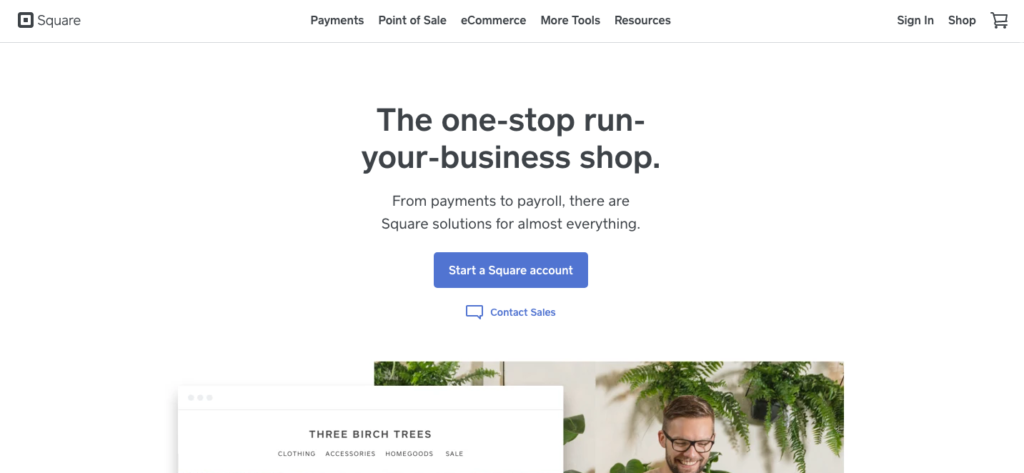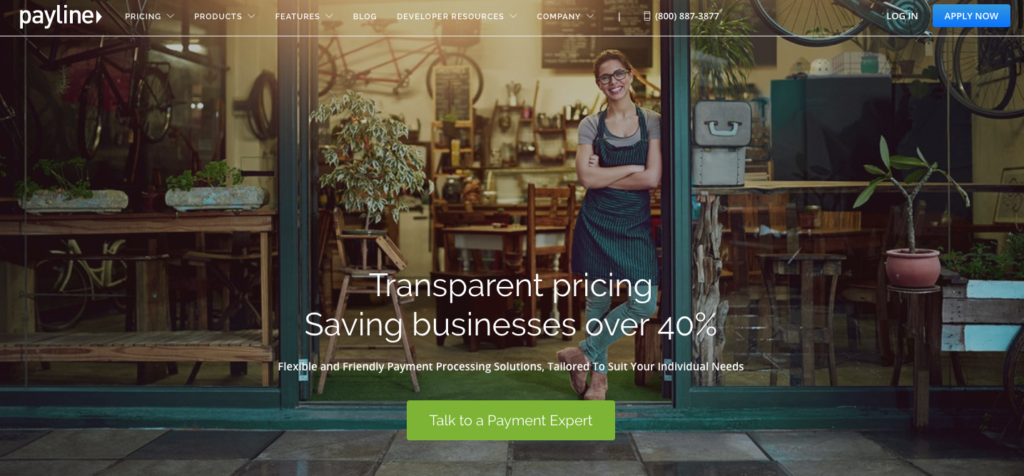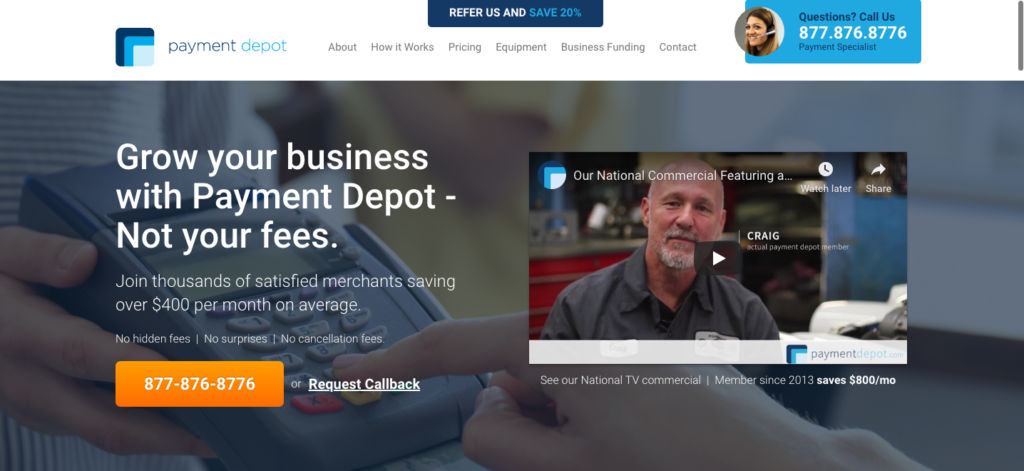Is There A Payment Collection Service That Charges The Customer The Fee
The word 'merchant' is believed to exist derived from the Latin word "mercari" pregnant traffic and the French word "mercis" meaning wares.
A merchant is a company or individual who sells a service or goods. An ecommerce merchant is someone who sells exclusively over the Internet. A merchant volition sell the appurtenances to the customer for a profit, and by constabulary, will have a duty of intendance to the client due to the cognition of the products he has for sale.
A merchant tin be a wholesaler or a retailer, and the products can be sold from any one source to whatever other source. A merchant is a non-specific term for anyone who sells annihilation, the only determining factor being that the product or service for sale is being sold for a profit.
Historically, a merchant is anyone who is involved in business or trade. During the 16th century, merchants included local traders such as bakers, grocers, shopkeepers equally well as others who imported and exported goods over vast distances, and offered value added services such as credit and finance.
Over the years, the reputation of the merchants has varied. In ancient Rome and Greece, merchants may have been wealthy but were awarded a high social condition. And, in the Middle E, the merchants enjoyed high status. The nowadays scenario has changed a peachy deal. In modern times, a merchant is someone who does activities solely for the purpose of generating profit, cash flow, and revenue.
What Are the Dissimilar Types of Merchants?
There are basically two types of merchants – wholesale and retail. Autonomously from these, newer types of merchants known every bit the ecommerce merchants have also emerged and earned a place in this digital age.
Ecommerce Merchant
An ecommerce merchant or an online merchant is someone who sells products or services exclusively over the Internet. In that location is a huge departure between an online seller and an online merchant. An online seller just buys products and and then sells them to generate profit, while an online merchant has more responsibilities than that.
An ecommerce merchant is not only in charge of his store's inventory but also of the financial procedure, promotion of his products and even edifice the brand identity.
Ecommerce and internet-based business concern are high-take a chance activities. The boarding process undergoes a series of credit checks and underwriting before a payment gateway is deployed. Friendly fraud and stolen credits is an issue these merchants have to tackle.
An e-commerce merchant largely sells products and services over the net. This could be via a marketplace such as Amazon and eBay, or past a tertiary-political party sales channel (Shopify, WooCommerce, BigCommerce).
Selling products online is, to an extreme edge, becoming an easier mode for east-commerce merchants to scale and reach the global market place. All associated costs for selling online are significantly lower in comparison to physical retail setups.
The depression barrier to entry gives merchants selling products on the internet a broad edge over the conventional means of doing business.
Conversely, setting up a secure checkout and automating the order fulfillment workflow is never an piece of cake undertaking for e-commerce merchants. To procedure payments, the seller needs a merchant account– which we'll await at exhaustively later in this commodity.
While due east-commerce merchants face their own set of hitches downwards the alley,– from fraud to chargebacks, the take chances is strikingly outweighed by the immense potential to scale and generate revenue from global sales.
To augment the client base of operations, an eastward-commerce merchant can sign up for a seller business relationship on Amazon and upload their product listings in minutes.
And since fulfillment forms a considerable role of the sales cycle, merchants can utilise the Amazon FBA infrastructure to take products accomplish their customers in a firmly-fixed and speedy way.
Retail Merchant
A retail merchant or retailer buys merchandise from wholesalers and sells them to end-users or consumers, normally in minor quantities. In a style, they act every bit middlemen between the producers and consumers.
Manufacturers are deeply involved in designing and developing a production, while the retailers are deeply involved in reaching out to the customers and selling these products. Both manufacturing and marketing are two different things and are difficult to reach, yet they both need each other to sustain.
Retailers are maestros in marketing, sales and customer service. Later purchasing the trade from wholesalers or manufacturers, they sell it at slightly higher prices in the market place. Note that the wholesale toll is ever less than the retail cost. The deviation in prices is considered equally the toll of marketing/advert.
Retail merchants are, for the nearly part, re-sellers. They source products from wholesalers and sell to end consumers in single units.
Wholesalers have little or zero command over products as before long every bit they sell to retail merchants. This gives retailers an selection to repackage and label the items using their brand.
Such a marketing technique, however, tin can't fly under the radar– especially with products that have bounden trademark rights. While retail merchants tend to deed as middlemen, they have a stable capacity to override costs such as buying in bulk and manufacturing.
A retail merchant simply needs to set a upkeep for the promotion of products on social selling channels. Other expenses tin be passed over to the selling price(think dropshipping). In that location's a big retail chain in the market place at the moment.
Resellers, therefore, are left with the task to adapt to trendy omnichannel selling strategies. Online retailing is seemingly becoming a thriving and contemporary ways of promoting and selling products to shoppers at a cross-border level.
Other retail merchants prefer selling products at storefronts to walk-in customers. All the same, retailing is the about desired method of distributing products to end consumers.
Wholesale Merchant
A wholesale merchant or wholesaler will typically purchase goods in bulk and redistribute the products to retailers in smaller quantities. Wholesaler suppliers are effectively both a reseller and a merchant because they buy goods from manufacturers and so resell these goods to retailers, hence they act equally a link between the producers and retailers.
Usually, a wholesale merchant would operate out of a large institution such as a warehouse in club to store stock before distributing it to retailers and individuals, however, it has get common for a wholesale merchant to act as a broker without physically dealing with the stock; the term for this is dropshipping.
Wholesale merchants are more often than not at the enterprise level in whatsoever niche market. It'south quite interesting to note that wholesale merchants source products from manufacturers. Suppliers for wholesale products utilise the B2B model to brand sales.
To become a grip on how wholesale merchants operate, this guide rolls out the nuts on how to choose the all-time wholesale suppliers for your eastward-commerce store. And here's an overly thought out list of 10 18-carat platforms where online merchants tin can observe legit suppliers:
- Oberlo (full review)
- SaleHoo (read review)
- Printful (review)
- AliExpress (review)
- Alibaba
- Doba
- Spocket (Exhaustive Spocket review)
- Wholesale 2B
- DHGate
- Wholesale Cardinal
Desire to learn more about wholesale merchants?
- Alibaba vs AliExpress: How do they compare for merchants and consumers?
- Modalyst vs Oberlo: Which comes out on top?
Wholesale suppliers establish a perfect value chain optimization in the market and give retailers a capacity to compete on pricing and quality. Retail merchants looking to drop-ship products have to grasp how the wholesale industry works.
A whole lot of expectations from customers tilts around reliable shipping and stellar product quality. As a consequence, SMB merchants take to pay close attention to the wholesaler's overall operation and reputation.
Affiliate Merchant
An affiliate merchant is a visitor that wishes to drive traffic and generates leads to their website or sales of their product through ads and links placed throughout a network of affiliates. A merchant may run their own in-house chapter program or they may use an affiliate network. These affiliate networks charge merchants a membership fee and also take an boosted committee from every sale then it is more economical to run their own in-firm chapter program.
Many companies take decided to incorporate both the traditional roles of retailers and manufacturers. Apple, for case, is both a manufacturer and retailer of its products. Hence Apple tree has eliminated the role of wholesalers here.
Another companies like Samsung requite their products to wholesalers or distributors. This distributor is solely responsible for order picking, delivery, grooming sales associates, promotions etc for the Samsung brand. This distributor is chosen a total-service wholesaler. Some wholesalers commencement service-related businesses and provide services for the products they are selling. Equally a effect, they get both – sales and service orders.
Companies like Best Buy are the biggest retailers in the globe. They purchase products from manufacturers like Sony and LG at wholesale price and sell them to consumers at a higher price.
All kinds of merchants exist in this economy, either information technology could be purely wholesaling or retailing or it could be a blend of both. However, ecommerce is rise and at that place is now a lesser demand for wholesale in developing economies. Ecommerce will soon have over the market and dropshipping will be a game changer in the coming years.
To understand how this works, you demand to think of the scope that relatively goes into digital chapter marketing.
Affiliate merchants promote products through a website and earn a commission in one case the buyer makes a purchase using the affiliate link. Online sellers pay affiliate merchants only when a sales conversion gets through.
While some merchants choose to source an external chapter service to help with leads and traffic, others opt to utilise an in-house chapter tracking software and run their ain program.
What's a Merchant Business relationship?
A merchant account is a type of bank business relationship that allows sellers, peculiarly in the ecommerce space to electronically take credit and debit card transactions from customers, with the assistance of a payment gateway. You should note that a merchant account isn't the typical depository financial institution account, equally information technology'due south the basic assumption that poses a lack of certainty.
If you lot're an eastward-commerce business owner, it's important to utilise a cashless payment framework that is trusted by customers and has loftier-security standards. So you'll need to set upward a merchant account to procedure payments from online shoppers.
How to Obtain a Merchant Account
There are a couple of pertinent factors that become into obtaining the best merchant business relationship. While handling payments from customers, you'll realize firsthand that with each sale transaction, there are a few hidden fees to settle.
Almost entirely, the merchant has to cover the transaction fees from payment processors, the credit carte du jour association, and the issuing bank for the merchant account. To that issue, information technology'due south maybe savvier for the merchant to look out for an option that'll aid cut downwardly the price per transaction.
On the other side, a low processing fee doesn't guarantee reliable service and support in the long run. To be eligible for a business organization bank business relationship, you'll need to have a valid business license and an EIN (employer identification number). The EIN serves every bit your social security number when you lot need to settle all revenue enhancement obligations.
To be eligible for a merchant account, you'll need to have a positive credit score. That includes clearing whatever bankruptcy records with the requisite bureau and declaring the existence of whatsoever previously acquired merchant account.
Other merchant accounts hold special features mostly for sellers with large volume transactions. These features attract higher fees. You want to check these operating costs to know whether a particular merchant account is an absolute fit for your business concern.
You lot'll need to fill out an application class and attach supporting documents. Financial statements are used to assess your business organisation's turnover and plant the rates on each sale transaction.
If you run an online business organisation, you'll demand to make all the necessary integrations on your website. This is to ensure that the checkout page is secure for shoppers and all payment options are concise.
A payment gateway and a merchant business relationship both seem to mean the same affair, but they aren't. They're still two table-stakes that work meantime. Allow'due south look at the difference.
Merchant Account vs Payment Gateway
A gateway is an stop-to-end encrypted solution that's designed to connect merchant accounts to all online payment networks. It's congenital to powerful APIs that integrate with the merchant'southward online store to assist handle credit carte du jour processing near.
The payment gateway captures payment details securely and transmits the data to the acquiring bank for security checks. A merchant needs a potent fraud protection solution to avert chargebacks and penalisation bug. And that's where the payment gateway comes in.
The long tail factor which online merchants need to safeguard likewise product quality and fast aircraft are secure transactions.
And for that reason, the retailer needs a competent merchant business relationship service provider. With payment gateways, the major component to look at is the processing fees. There's unremarkably a small surcharge for each credit or debit card transaction. The fees vary from one processor to the other.
All processed payments go to the merchant account. And that's why whatever ecommerce merchant needs one so that funds can be transferred in existent-fourth dimension. It's consequently worth noting that it may take anything betwixt 2-iv business days for funds to reflect in the business'southward bank account.
Farther reading:
- Payment Processing 101: What'southward the Divergence Between a Payment Processor, Payment Gateway & Merchant Account.
What to Look For in a Payment Processor?
Fees
Pricing models for monthly subscriptions and transaction fees are both considerable criteria to assess the near convenient merchant payment processor. Most of these solutions have a string of fees on each sign up such as; application fees, disbelieve charge per unit, cross-edge fees, rental fees for the credit card last, monthly fees, setup fees, and then on.
Extra fees can potentially heighten the charge per unit on each credit card transaction. The merchant needs to cheque out all options in the market place and brand a full comparison of the payment processing fees.
The nearly widely used pricing structures include; apartment-rate, interchange-plus, tiered rates, and direct interchange. To dig a piffling bit more, let'southward have a expect at each structure separately:
- Flat rate: A flat rate is more like a fixed percentage that's based on a accuse when processing payments. This pricing model has the all-time ease of utilise and is quick to setup. A flat-charge per unit fee is a suitable option for pocket-sized retail setups and startups with low sales volumes.
- Interchange-plus: An Interchange fee works all-time for credit card transactions. Credit card issuers such as Mastercard and Visa are more than inclined to this option for its chapters to handle large volume payments, preferably those above $twenty,000 per month.
- Direct interchange: Simply put, a directly interchange fee is one where the merchant charges a one-off monthly fee without whatever per centum charge per unit. It's not the best for small businesses that generate low volumes of sales.
- Tiered rates: Tiered rates are distinctively grouped in different structures that split up each carte du jour type(Visa, Maestro, Discover).It's, yet, non the almost convenient for SMBs since the fees fluctuate thus not ideal for B2C transactions. Tiered rates are best for merchants handling large payments such as business-to-business sales.
Integrations
Easy integration should be least of your worries especially if you lot're an online merchant. You want to get-go check whether your selling channel connects to the most popular payment gateways in the market.
PayPal's integrations directory, but to illustrate, lists quite a number of 'big bicycle' e-commerce channels such as Shopify, BigCommerce, WooCommerce, Magneto, Squarespace and Wix.
Security
You can't overlook security standards, especially when handling online transactions from customers. NACHA (National Clearing Firm Clan) mandates that merchants who initiate ACH transactions using third-party payment processors should execute a strong security policy and ensure that customer's payment information is protected.
EMV bit cards and contactless payment transactions such as Apple tree Pay or Google Pay offering high-security standards via end-to-finish encryption. A merchant who operates a small business will demand a card reader for in-store purchases.
To uphold high-security standards, SMBs with brick-and-mortar stores should expect at options such every bit:
- Square
- Shopify Payments
- PayPal Here
- SumUp
Ease of use
Nix is more illuminating than easy navigation, speed, and flexibility. It's accurate to say that eastward-commerce hangs on an electronic cross-border economic system and customers want that instant gratification.
And so before y'all choice a merchant payment processor, these are the essential questions to ask:
- Is there 24/7 customer support?
- Can you run both online and offline credit card processing services?
- Is their payment infrastructure PCI- compliant?
- Does the provider impose an early on termination fee?
Features
Not all merchant payment solutions accept refined elements to assistance yous easily operate your business. Your needs are different from those of other merchants in the market.
If, for instance, y'all're a merchant selling products online, you probably demand a solid payment gateway that your target customer demographic tin familiarize with, a virtual terminal, payment processor, and i with fraud detection technology.
Yous too need to look at how a payment gateway's POS system is structured. For ecommerce merchants, specially, brand sure the inventory tools are up to par with the marketplace needs. Customers want a faster and secure checkout experience. Hence, yous tin't overlook all the pertinent security standards.
To scrutinize further, merchants demand to check if the payment solution offers these perks:
- Flexibility to calibration your business
- POS compatibility. Does it piece of work on both iOS and Android devices?
- Is the hardware suitable for existent-time inventory direction?
- Are at that place intuitive reporting and analytics tools?
Top payment processors for merchants
So far, the best tertiary-political party merchant payment services for SMBs include:
Square

Square is a jack of many dealings in the marketplace. Its mobile processing automation is a notch ahead of most competitors(read our review).
This solution is the resolute fit for low-volume merchants who sell online and want to sync their stores with a compact checkout gateway.
A merchant tin swiftly have payments on a tablet or a smartphone, send invoices to customers, and remotely take credit bill of fare payments from a figurer.
Foursquare's Indicate-Of-Sale is fully customizable and the software is free to use for both brick & mortar and ecommerce merchants. It also has a dedicated solution for merchants in the hospitality manufacture(restaurants, coffee shops).
The processing rate for each tap, dip or swipe is 2.6% + 10¢. Foursquare also offers a custom pricing model for merchants who make more than $250K in card sales.
Retail merchants can use Square's POS to handle payments securely, manage their inventory, and grow their businesses using insightful existent-time reports.
Payline Data

If you're a merchant who'south looking for a mobile gateway for eastward-retail payments, then Payline (read our review) could be a perfect bargain for y'all.
At its core, the payment choice seems to take a tolerant pricing structure, peculiarly for SMB merchants. Its interchange fee is far more transparent, compared to other solutions and a merchant doesn't demand to bargain with whatsoever early termination charges.
What's extremely impressive is that Payline offers both its gateway infrastructure and virtual terminal at zero costs. Same equally other competitors, Payline strictly abides by the PCI security standards.
Then if you're a merchant in the retail or ecommerce manufacture, you lot tin can run secure EMV and NFC- based payments right from Payline'south checkpoint. The same goes for recurring bills (retrieve subscriptions) and ACH payments.
Its virtual last allows a merchant to accept payments even when the customer's carte is non present and so long as the m-POS(tablet, computer) device is continued to the net.
To calculate the monthly costs, you can apply its online computer or schedule a call to become a custom guess. For every 'swiping in person' customer, Payline charges a 0.2% commission which is equivalent to $0.10 per transaction.
The merchant can alternatively choose to function with $10 per calendar month. Where the credit card is not present, the committee is 0.3%/ $.020 per transaction. Or amend nonetheless, you lot tin pay $20/month.
PayPal

If you lot're a merchant running an online business, PayPal is the ultimate solution for you. PayPal wears and so many hats. The online merchant services provider works both as a payment gateway and a payment services account.
It's a preferable selection for many online merchants since there are no startup costs, termination fees or whatsoever monthly charges. For merchants with a verified business business relationship, PayPal protection for sellers covers any fraudulent chargebacks, reversals, and other associated fees whenever a buyer files a merits.
For online payments, y'all'll but part with a 2.9% flat charge per unit + $0.xxx per transaction. If you want to customize the checkout experience for your online customers, you can sign up for PayPal Payments Pro, only you'll need to pay a $30 monthly fee. This solution offers easy API cart integrations for ecommerce merchants.
Want to acquire more than?
- 17 PayPal Alternatives: Elevation solutions reviewed in 2020
- PayPal Vs. Skrill: And why you lot probably need both.
- In-Depth PayPal Reviews: Is PayPal the right payment platform for yous?
Payment Depot

Payment Depot is a pristine alternative that offers a transparent pricing model for merchants selling online (read our Payline Data review).
With a sharp focus on the ecommerce merchants' business model, the payment services provider easily integrates with platforms such as OpenCart, PrestaShop, BigCommerce, 3dcart, WooCommerce, and Magneto.
At that place'south a broad range of equipment options to choose from. Equally a retail merchant, y'all can purchase any of Depot's Bespeak of Auction Systems (POS) for a cut-charge per unit toll, and run speedy in-store transactions.
Payment Depot also supports NFC-based credit menu terminals, mobile payments(both iOS & Android), and a virtual terminal for ecommerce businesses. Its pricing is tiered to adapt merchants running businesses at whatsoever scale.
The monthly plan for the Bones account which is perfect for new businesses with a processing volume of up to $25,000, is only $49 + $0.15 per sale transaction. You also get chargeback and risk monitoring reports in existent-time.
Bottomline
So let's do a brief recap.
If y'all're on the errand to run a business organization, whether a brick and mortar or an ecommerce store, opening a merchant account should be a pregnant step to include in your blueprint.
A merchant account should help you cross the bridge anytime y'all want to exercise credit carte du jour processing from various credit card networks.
Before getting your hands on a merchant account provider, you should run a deep overrun on the customer reviews, processing rates, hidden fees, customer service score, contracts, PCI compliance, and hardware compatibility.
For ecommerce merchants, you should check if a payment gateway integrates with your selling channel. This sets the seal to enhance a smooth checkout experience for your customers.
Source: https://ecommerce-platforms.com/glossary/merchant
Posted by: alfarothelover.blogspot.com


0 Response to "Is There A Payment Collection Service That Charges The Customer The Fee"
Post a Comment